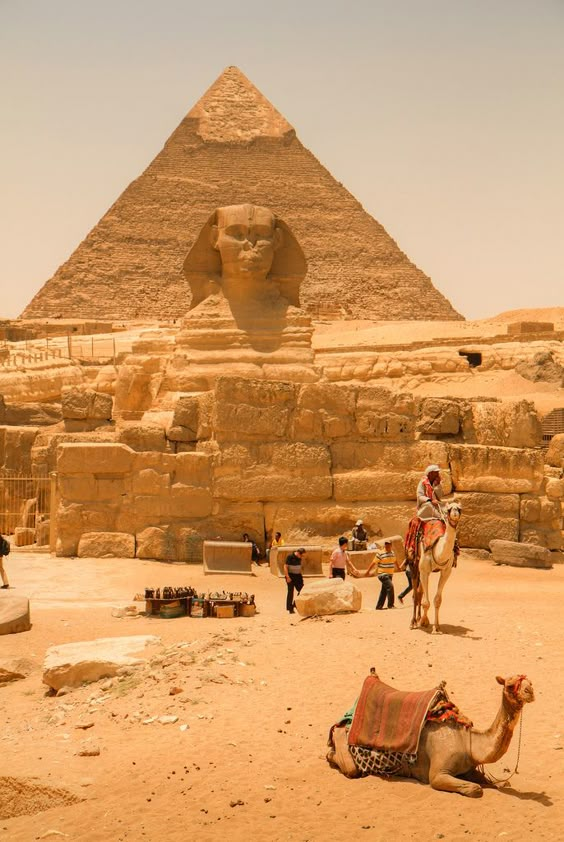Egypt is more than a checklist of monuments — it’s a place where layers of history meet daily life. For travelers seeking depth, historical tourism in Egypt offers immersive experiences that connect you to 5,000 years of civilization: pharaohs and temples, river life on the Nile, bustling bazaars, and sunsets that feel unchanged for millennia. Whether you’re joining Luxor tours, taking a Cairo pyramids trip, or cruising the Nile at dusk, Egypt rewards curiosity with unforgettable travel experiences.
Why Egypt is a Top Destination for Historical Tourism
Egypt’s attractions aren’t isolated sights; they form an interconnected story. The Pyramids of Giza and the Sphinx anchor Cairo’s ancient legacy, while Luxor and Aswan reveal the rituals, temples, and tombs that defined pharaonic life. Travellers who come for history find more than ruins — they find living culture: temple priests’ inscriptions, locals preserving traditional crafts, and Nile ferrymen who still navigate by stars.
Must-Visit Historic Sites
Cairo & The Giza Plateau
No trip to Egypt is complete without a Cairo pyramids trip. The Giza Plateau — home to the Great Pyramid, Khafre, Menkaure and the Sphinx — is an awe-inspiring opening chapter. Nearby, the Egyptian Museum (or the Grand Egyptian Museum, where applicable) houses artifacts that explain the context behind what you see in the field. Plan for early mornings or sunset visits to avoid heat and crowds.
Luxor: The World’s Greatest Open-Air Museum
Luxor tours are central to historical tourism. The east bank offers Karnak and Luxor Temples — monumental spaces designed for public worship — while the west bank hosts the Valley of the Kings and Valley of the Queens, where tombs preserve vivid wall paintings and the tomb of Tutankhamun’s treasures were found. A guided tour brings these archaeological narratives to life.
Aswan & The Nile
Aswan’s relaxed riverside charm and sites like Philae Temple and the Aswan High Dam complement any Nile cruise itinerary. Cruising between Luxor and Aswan lets you experience the changing Nile landscape: feluccas (traditional sails), small island villages, and riverside sunsets — a calm counterpoint to temple exploration.
Historic Markets & Cultural Stops
Beyond grand monuments, historical tourism includes the human-scale experiences: wandering Khan El-Khalili in Cairo, sampling street foods, and visiting artisan workshops where traditional techniques survive. These moments turn sightseeing into memory.
What to Expect from a Historical Tour with Ra Holiday
A well-designed historical tour balances iconic sites with pacing and context. Expect:
-
Professional English-speaking guides who explain archaeology and local stories.
-
Comfortable transport between sites and assistance with entry procedures.
-
Options for private tours, day trips, and multi-day packages that include Luxor tours, Cairo day trips, and Nile cruising segments.
-
Flexibility to add specialty experiences — private temple visits at sunrise, sound-and-light shows, or local cooking demonstrations.
Practical Tips for Travelers
-
Best time to visit: October–April for milder temperatures.
-
Dress respectfully: Lightweight, modest clothing helps in religious and conservative areas.
-
Book guided tours: Sites like the Valley of the Kings are richer with expert interpretation.
-
Tickets & timing: Major sites get busy — early starts and pre-booked tickets improve the experience.
-
Hydration & sun protection: Egypt’s sun is strong; carry water and a hat.
How Historical Tourism Enriches Your Trip
Historical tourism isn’t just about seeing — it’s about feeling connected. Walking temple avenues, hearing inscriptions translated aloud, and watching skilled conservators at work turn static stones into living stories. These experiences deepen your Egypt travel experience, creating memories you’ll return to again and again.



